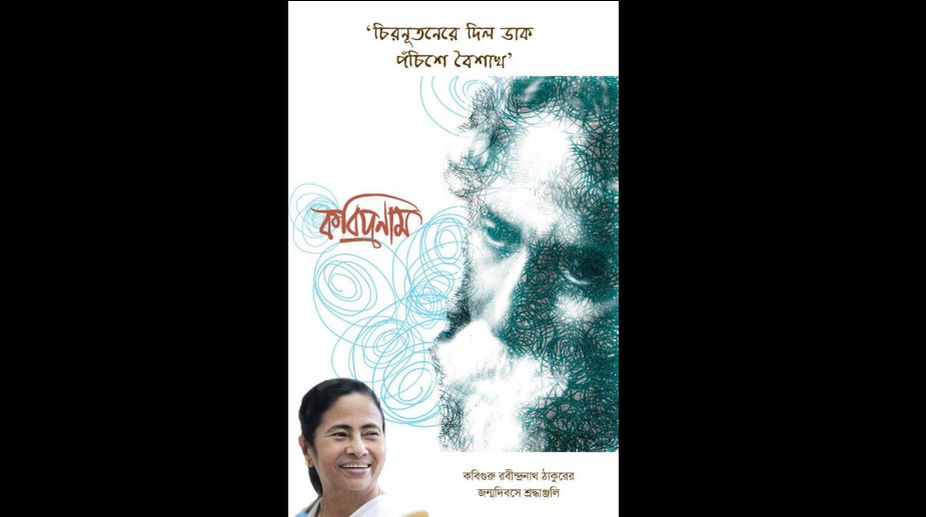CM lauds tigress rescue
Chief Minister Mamata Banerjee has extended appreciation for the Chief Conservator of Forests for his role in capturing Zeenat, an escapee tigress of Similipal Tiger Reserve of Odhisa.
On Pochishe Boishakh every year, Tagore’s followers and admirers world over mark the day by singing the song ‘He Nutan’.

West Bengal Chief Minister Mamata Banerjee on Wednesday paid tribute to Rabindranath Tagore on Pochishe Boishakh. (Photo: Twitter)
West Bengal Chief Minister Mamata Banerjee on Wednesday paid tribute to “the great poet and writer” Rabindranath Tagore on Pochishe Boishakh.
Banrejee in a tweet said, “Today is the birth anniversary of Rabindranath Tagore. My tribute to the great poet and writer on Pochishe Boishakh”.
Advertisement
Today is the birth anniversary of Rabindranath Tagore. My tribute to the great poet and writer on Pochishe Boishakh
Advertisement
— Mamata Banerjee (@MamataOfficial) May 9, 2018
On Pochishe Boishakh every year, Tagore’s followers and admirers world over mark the day by singing the song ‘He Nutan’.
Recomposed from a poem, Pochishe Boishakh, from his Purabi collection, ‘He Nutan’ was one of the last songs written by Tagore.
Also read : Pochishe Boishakh | The story behind ‘He Nutan’, Rabindranath Tagore’s birthday song
Listen to the rendition of ‘He Nutan’ by Kanak Biswas here.
Rabindranath Tagore was a Bengali polymath, who reshaped Bengali literature and music, as well as Indian art with Contextual Modernism in the late 19th and early 20th centuries.
He was the first non-European to win Nobel Prize in literature for his collection of poems– Gitanjali for “profoundly sensitive, fresh and beautiful verse”. Tagore is often referred to as “the Bard of Bengal”.
His compositions were chosen by two nations as national anthems: India’s Jana Gana Mana and Bangladesh’s Amar Shonar Bangla. The Sri Lankan national anthem was inspired by his work.
Tagore contribution to Indian literature is considered unparalleled, however his legacy also endures in the institution he founded, Visva-Bharati University.
Also read | Rabindranath Tagore in the age of human rights
See trailer | Bioscopewala, a tribute to Rabindranath Tagore on his 157th birth anniversary
While Bengal and Bengalis have always celebrated Rabindra Jayanti on “Pochishe Boishakh”, there has always been a slight confusion every year on the date of his birthday.
Tagore was born on the 25th day of Boishakh in the year 1348, as per the Bengali calendar, and he always celebrated his birthday on this day during his lifetime. Tagore aficionados have stuck to that date.
However, since the corresponding date as per the Georgian calendar is 7 May, many consider that as Tagore’s official birthday. This year too, tributes poured in from all quarters on 7 May as India and the world remembered Tagore on his birthday.
Many cultural functions and official events are planned in Bengal and elsewhere on 9 May.
Advertisement